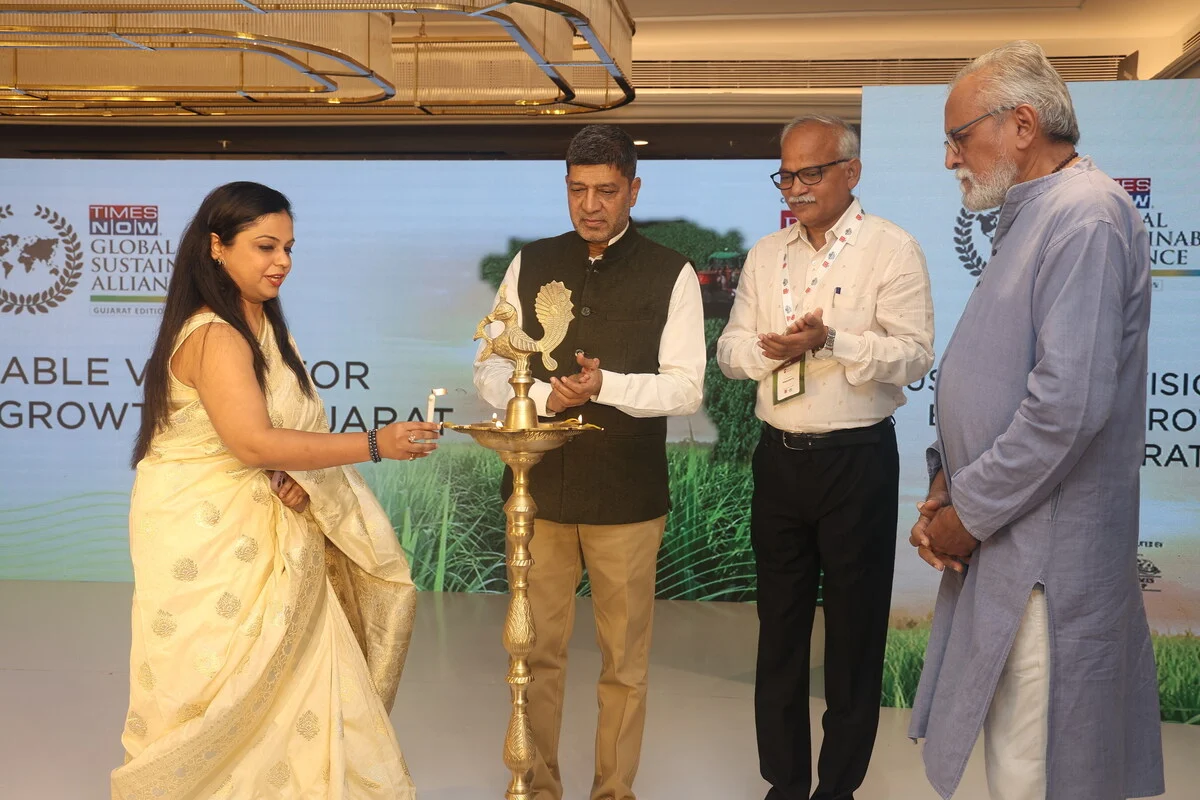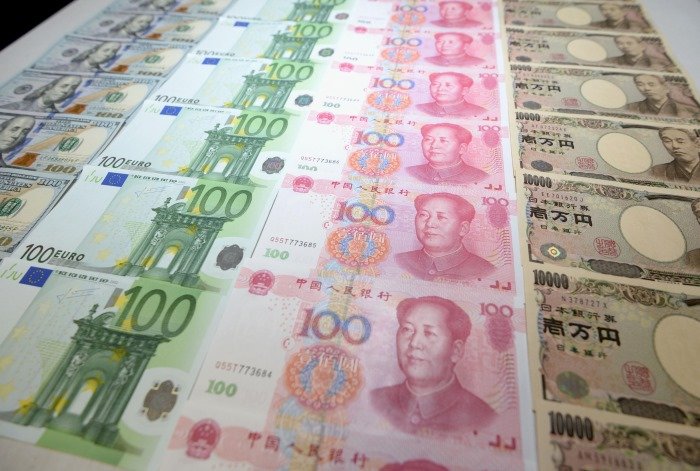
- media@moneyinfocus.news

At the Global Sustainability Alliance Gujarat Edition by ET Edge, delegates emphasized the need for government action to attract significant investments, including foreign direct investment (FDI), to support Gujarat’s farmers.
They highlighted that with global markets increasingly enforcing strict sustainability standards, it is crucial for the state to create an investment-friendly environment to ensure its farmers can remain competitive and thrive.
The conclave titled ‘Accelerating Progress: Resource conscious and low carbon agricultural development’ was addressed by Prof. Anil Kumar Gupta, Padmashree Awardee, Member of Governing Board, National Innovation Foundation, Founder – Honeybee Network, National Innovation Foundation, SRISTI, and GIAN. The key note was delivered by R.A.S Patel, Deputy Commissioner (RFS), Department of Agriculture & Farmers Welfare, Ministry of Agriculture & Farmers Welfare, Government of India and the speakers included Megha Desai, Senior Coordinator, National Farmer’s Forum Network, Self Employed Women’s Association (SEWA), Bhikhubhai N Patel, Managing Trustee & Secretary, Sardar Patel Education Trust, Anand, President, Gujarat Tobacco Merchant Association, BK Singhal, Chief General Manager, NABARD (Gujarat Regional Office), Dr. Ashok Dalwai, CEO, National Rainfed Area Authority (NRAA) to name a few.
Speaking at the GSA summit held at Gandhinagar today, keynote speaker R.A.S Patel, Deputy Commissioner (RFS), Department of Agriculture & Farmers Welfare, Ministry of Agriculture & Farmers Welfare, Government of India said, “We have support from the Government of India, but getting investments from private sectors and FDI is also crucial. Investments is not just an economic necessity but a strategic imperative. Gujarat can continue to thrive in the global agricultural market in compliance with stringent sustainability standards that are coming into place only if there is large scale investment.”
India is a major global exporter of agricultural goods like rice, spices, tea, coffee, and tobacco. The GSA Gujarat Edition discussed the challenges posed by the new standards which are likely to significantly, affect both agricultural exports and the livelihoods of millions of farmers.
Gujarat accounts for over 40.5% of India’s groundnut production, nearly 35% of its cotton output, and is the largest exporter of tobacco. However, Gujarat’s agricultural success comes with growing challenges of dependence on water-intensive crops like cotton, tobacco, and groundnuts, leading to a drastic fall in ground water. This has exacerbated water scarcity in key farming regions, while climate change—marked by erratic rainfall and rising temperatures—continues to threaten crop yields and agricultural stability.
Commenting on the same, Prof. Anil Kumar Gupta, Padmashree Awardee, Member of Governing Board, National Innovation Foundation, Founder – Honeybee Network, National Innovation Foundation, SRISTI and GIAN. said, ” Gujarat farmers are pioneers in sustainable farming due to their ability to experiment, innovate and commercialise solutions. However, with climate change and other environmental factors, it is difficult for the soil to absorb nutrients and crops are unable to retain the moisture. Hence, an FDI is much needed for co-manufacturing machinery and precision farming techniques, a massive amount should go into the processing aspect followed by infrastructure and better drainage especially in the rural areas.”
The Indian government has already initiated several programs like The National Mission for Sustainable Agriculture (NMSA) & Agri Infrastructure Fund aimed at fostering sustainable agriculture. However, the impact of new European Union (EU) sustainability standards on India’s agricultural exports, particularly those from Gujarat was further highlighted as a key concern. The EU’s Carbon Border Adjustment Mechanism (CBAM), Environmental, Social, and Governance (ESG) regulations, and the Farm to Fork Strategy all introduce stringent requirements that Indian exporters must meet to maintain market access.
Bhikhubhai N Patel, Managing Trustee & Secretary, Sardar Patel Education Trust, Anand, President, Gujarat Tobacco Merchant & Farmer Association said “Private sector investment and FDI are key to addressing the financial challenges of meeting sustainability standards. While Gujarat is the highest tobacco producing state, there is an urgent need to educate the farmers on the derivatives of tobacco farming. industries like medicine & food grade are key source of demand for tobacco/nicotine. In absence of an export policy for tobacco in India, this is a major opportunity that we are missing out on. Hence the government needs to establish ‘ease of doing farming’ with the help of FDI in the sector. A focused sectoral approach with incentives being directed to farmers, will enable tobacco byproducts to attract international trade opportunities.”
The Global Sustainability Alliance Gujarat Edition has underscored that large-scale capital infusion in the agriculture sector, including through FDI, is not just an economic necessity but a strategic imperative. By embracing these investments and innovations, Gujarat can continue to compete effectively in the global market while meeting stringent sustainability standards.
About Global Sustainability Alliance
Global Sustainability Alliance is an impact led community of thought leaders who are working towards transforming bold ambitions into action. The group of people activates leadership globally to make economies sustainable for people, nature, and climate.
About ET Edge
ET Edge, a Times Group Initiative, is part of a 177 year old legendary ecosystem with in-house capabilities, focused on empowering industries and business. We offer strategically planned and innovative platforms that include Conferences, Summits, exhibitions, workshops, roundtables, business to business meetings and peer learning net-working forums.

We are a dynamic daily channel dedicated to delivering essential insights on economics, business, and politics—empowering professionals and decision-makers to navigate a complex and fast-evolving world. Our content blends in-depth reporting, exclusive analysis, and strategic interviews to help readers stay informed, anticipate opportunities, and make smarter decisions. Connect with us at info@moneyinfocus.news
to collaborate or learn more.













